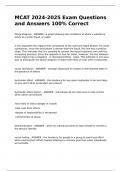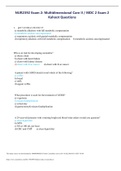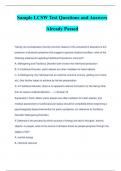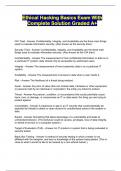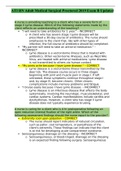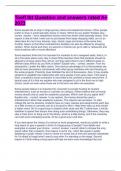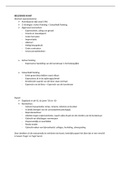Examen
MCAT Exam Questions and Answers 100% Correct
- Grado
- Institución
MCAT Exam Questions and Answers 100% CorrectMCAT Exam Questions and Answers 100% CorrectMCAT Exam Questions and Answers 100% CorrectMCAT Exam Questions and Answers 100% Correct Phase Diagram - ANSWER - a graph showing the conditions at which a substance exists as a solid, liquid, or vapor a...
[Mostrar más]
